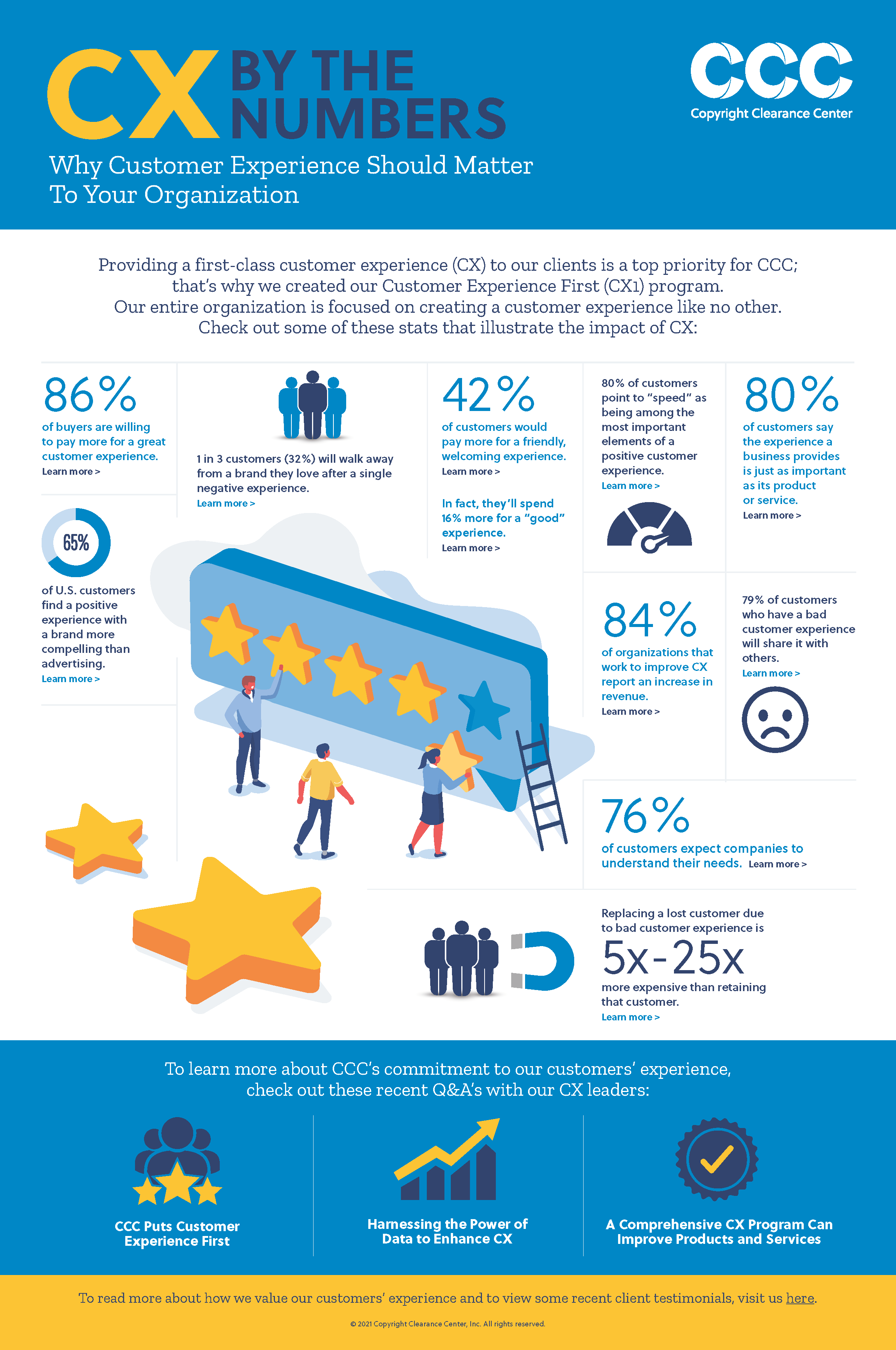Business success comes from creating value for customers. But beyond the services and products offered, every bit of engagement with your customer adds to – or detracts from – the value you’ve worked so hard to create. That’s why companies focus on how to find new ways to build value for customers at every step. In this post, I’ll explore three of the most prevalent – and impactful – value-creation initiatives: customer experience, customer success and customer service. While each program is unique, they all share a common thread: a laser-like focus on the customer.
Customer Experience
Customer Experience (CX) is much like it sounds; it’s the experience that your customers have with your brand along the entire buyer and customer journey. It encompasses everything from preliminary visits to your website to conversations with sales reps to how readily available key resources are to your clients’ experience with your product and far beyond. CX is the collective perception your customer has of your brand. It’s often the reason they choose – or don’t choose – your organization and it’s incredibly important.
 My colleague Deb Mariniello recently offered her perspective on CX saying “[Our customers] don’t need to work with us, but instead they choose to…we don’t take that for granted. Our hope and expectation are that our Customer Experience initiative will help us continue to serve [our customers’] needs in a way that makes their jobs easier and their professional lives more pleasant and productive—and that they will continue to choose us.”
My colleague Deb Mariniello recently offered her perspective on CX saying “[Our customers] don’t need to work with us, but instead they choose to…we don’t take that for granted. Our hope and expectation are that our Customer Experience initiative will help us continue to serve [our customers’] needs in a way that makes their jobs easier and their professional lives more pleasant and productive—and that they will continue to choose us.”
Customer Service
We think of customer service as the assistance we offer both before and after customers buy our solutions. This includes phone support, email, webpage chat bots, social media and more. Customer service is reactive, meaning that it’s the way your team supports customers after they’ve come to you with an issue. It’s the collection of interactions you have with your customers to help them navigate a challenge and accomplish their desired outcome—and it makes up part of the whole Customer Experience.
Customer Success
Customer Success is a proactive methodology that focuses on helping your customers get the most value from your product or service. That means anticipating future customer challenges and proactively finding solutions to alleviate them. In our view, a strong customer success strategy ensures customers achieve their desired outcome each and every time they use your product or service. Often, this means diligently analyzing your customers’ journey within your organization—and with your products or services—and anticipating and alleviating any potential hurdles. For example, do you expect that a future enhancement might cause confusion while users adjust to a new workflow? A good Customer Success strategy means committing the resources to address it, identifying the potential tripping points, taking steps to mitigate any confusion, and delivering a seamless user interface—without interruption. Ensuring that your customers achieve their desired outcome each and every time decreases customer churn and increases upsell opportunities. And like Customer Service, Customer Success is a component of the entire Customer Experience (i.e., your customers’ perception of your brand).
Creating value for customers starts with the product or solution, but the value grows with a comprehensive customer experience, service and success strategy. At CCC, we continually align our solution offering with how our customers will interact with that solution and with us.


